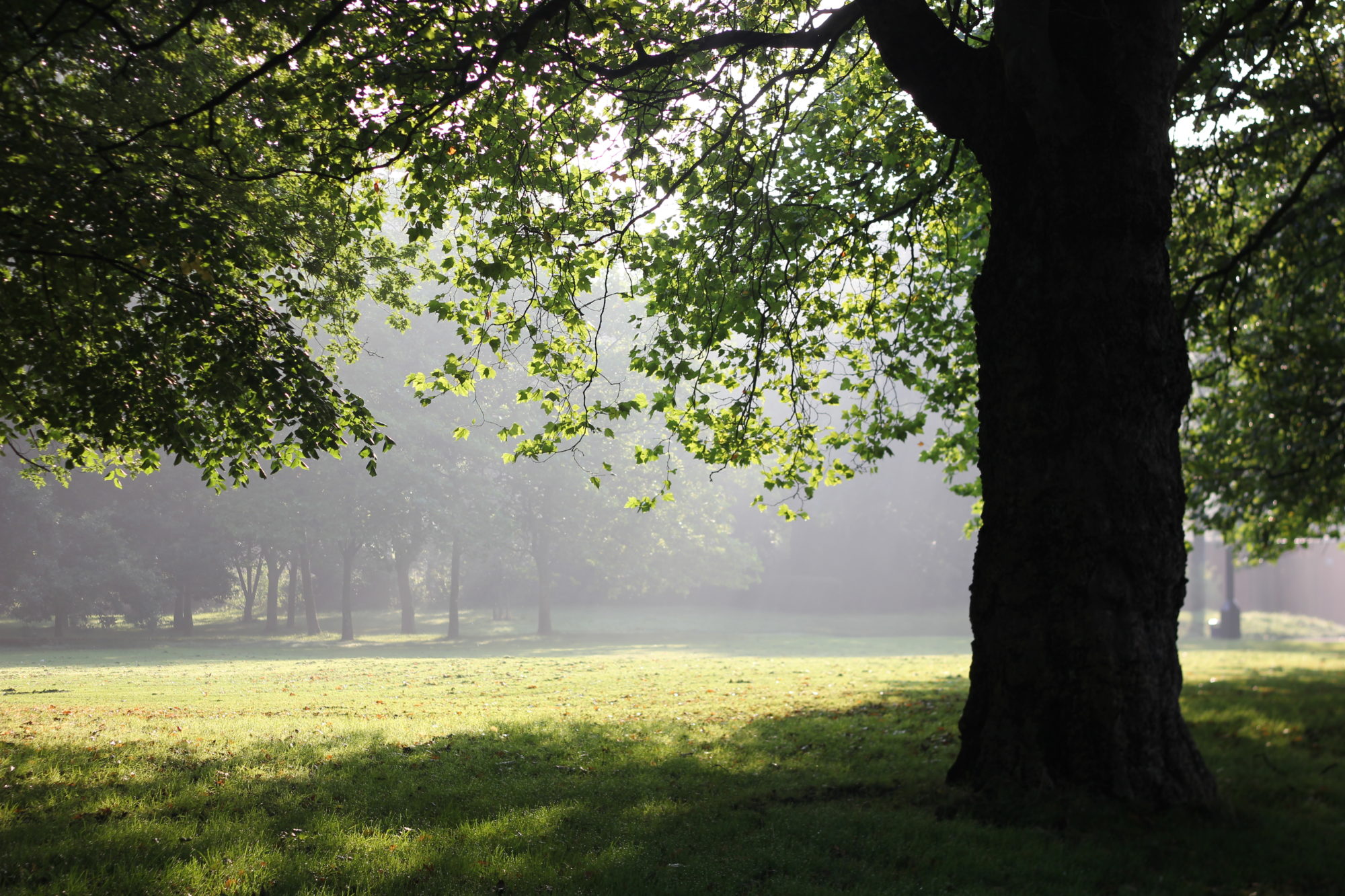
14 Sep The earth is talking to you.
Recently I’ve been thinking about the connectedness of everything.
About how it is all part of the same thing. We are all substance and soil and soul. We are all atoms and curiosity and magic.
And we are all in the conversation.

A few years back, we lived close to a big park where I sometimes used to run.
I ran to get fit, but really I ran to get out. To leave the house and be alone without children talking and questioning and demanding. I love my children, but by 6pm. after a day on my own with them, I was often ready for a break. So, a couple of times a week, as Matt walked in from a full days work I would walk out, to feel knackered and sweaty but free, for half an hour or so.
I did anything to distract myself from the pain (and boredom) of running. I listened to lots of podcasts. At one point I was listening to one about, among other things, the seasons. It was February or March, and the speaker talked about the process of death and renewal the earth goes through every year. Of bulbs planted deep in the black earth. Of seeds dying and falling to the ground. Of the time before there are signs of life.
And he likened this to our lives. The times of loss and emptiness, where things are painful and feel hopeless. The waiting for change.
He talked about how our lives are reflected in nature.
He opened my eyes for the first time to the truth that the earth is constantly speaking; reminding us of the seasonal nature of life, of the process, of delayed gratification and hope in the darkness.
The earth was wise and it had something to say.

A couple of weeks ago I was spending some time with my Nan. Every time I see her I ask her questions about her life, rooting around to find another pearl of wisdom and truth.
On this occasion I asked her about the happiest time of her life.
She spoke about the years directly after her husband, my Grandad, retired. She described how they would go to Romney marshes, near to where they lived in Folkestone. They wouldn’t walk far but spent their time looking in the hedgerows at the flowers and the birds, seeing what was growing, observing.
There was a heronry across the marsh and they would regularly watch the birds, see them feed and raise their young, see the young birds grow. She felt a connection with these birds.
She said they always went to look for the Heron.
Eventually my Grandparents made the very difficult decision to move from their home on the South East tip of the country, to Liverpool, to be nearer family. Shortly before they moved they took one final trip to the marsh and, after having been there for years, the heronry was gone. My Grandad got in his car and drove around to the other side of the marsh, to where the heronry was located to check – to see if the birds really had left.
It was deserted.
Nan didn’t draw any conclusions from this, but I could tell she drew some comfort from the way nature was echoing the transition they were experiencing. It was bittersweet, but reassuring.

Montaigne* said,
Salvation is found in paying full attention to nature
In the last ten years I have learnt this to be true, and experienced it in so many ways. The earth offering me comfort or understanding, the earth revealing itself to show the way forward, the earth reminding me of the seasonal nature of everything. The earth telling me to quieten and slow down, to rest and recuperate, to grow and bloom and show my colours.
In the Bible it says that the whole earth is full of the glory of God, it says that the earth is the Lord’s and everything in it, it says the name of the Lord and his unfailing love fills the earth. So maybe it is not so surprising that the earth has something to say.
I used to think that God only spoke through the Bible, or possibly through a wise person quoting the Bible, and even then he wasn’t very vocal.
But now I have realised that God is speaking all the time, it just took me a while to notice.
*Montaigne was one of the most significant philosophers of the French Renaissance, and is known for popularizing the essay as a literary genre. If you want to read more, Sarah Bakewell wrote an excellent biography about him, How to Live: A life of Montaigne in one question and twenty attempts at an answer.
No Comments